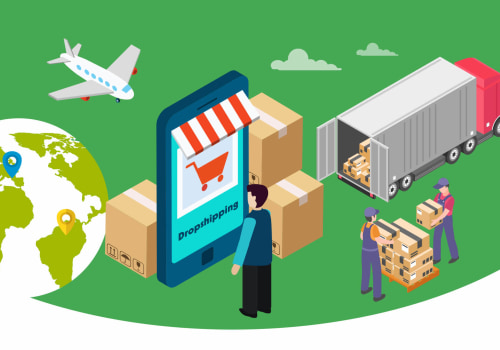Online shopping has become more popular than ever, as the convenience of being able to purchase items from the comfort of your own home is hard to resist. However, with this convenience comes the potential risk of having your data stolen, which is why it is important to ensure that you are aware of data protection laws and regulations. Data protection laws and regulations are designed to protect you from the misuse and abuse of your personal data, and understanding them is crucial if you want to shop online safely. In this article, we will explore the basics of data protection laws and regulations, and how they can help you stay safe when shopping online. We will look at what data protection laws and regulations cover, how they can protect you, and what you need to do to ensure that your personal data is secure. The first thing to understand is that data protection laws and regulations are different in different countries and regions.
For example, in the European Union, the General Data Protection Regulation (GDPR) was introduced in 2018 to protect the personal data of individuals. In the United States, the Federal Trade Commission (FTC) has rules and guidelines for businesses to protect consumer data. Additionally, many states have their own laws that must be followed. It's important to understand how these laws and regulations protect your data. For example, the GDPR requires businesses to get explicit consent from an individual before collecting their data.
Additionally, businesses must be transparent about how they use the data they collect, and must delete any personal data upon request. The FTC also has rules for businesses that collect customer data. They must provide clear information about their privacy policies, secure any sensitive customer information, and not mislead customers about the security of their data. When shopping online, it's important to make sure you're dealing with a business that follows these laws and regulations. Look for companies that have a clear privacy policy and make sure you understand what data they collect and how they use it.
Additionally, make sure the website is secure by looking for the lock icon in your browser's address bar. Finally, if you're concerned about your data being misused or stolen, it's important to take steps to protect yourself. Be wary of any emails or websites asking for personal information, use strong passwords for online accounts, and consider using a secure payment method like PayPal or Apple Pay instead of entering your credit card details directly into a website.
How Can I Make Sure I'm Shopping Safely Online?
Data protection laws and regulations are important for protecting the privacy of individuals when shopping online. There are several steps you can take to ensure your data is secure while shopping online. First, make sure the website you are using is secure.Look for a padlock icon on the address bar or check the URL to see if it starts with “https”, which indicates a secure connection. You should also look for a privacy policy on the website, as this will provide information about how your data will be used and protected. It’s also important to use strong passwords when shopping online. Avoid using obvious words or phrases, and make sure your passwords are unique and difficult to guess.
You should also make sure to change your passwords regularly. Finally, it’s important to be aware of any potential scams or phishing attempts. Be wary of any unsolicited emails or links and never provide personal or financial information unless you are certain that the website is legitimate.
Data Protection Laws and Regulations Around the World
Data protection laws and regulations vary from country to country, so it's important to understand the different laws and regulations that apply in the country or region where you are shopping.In the European Union, for example, the General Data Protection Regulation (GDPR) sets out strict rules for how companies must protect customer data. In the United States, the Children's Online Privacy Protection Act (COPPA) sets out protections for children's personal information. In many countries, data protection laws and regulations also give customers the right to access their personal data, delete it, and request that companies do not use it for certain purposes. This is known as the “right to be forgotten”, and it gives customers more control over their data and how it is used.
In addition, most countries have laws and regulations that specify how companies must protect customer data from unauthorized access or misuse. These rules usually require companies to take reasonable security measures to protect customer data, such as using encryption or two-factor authentication. Finally, it is important to remember that data protection laws and regulations are constantly changing, so it is important to stay up-to-date with any new rules or regulations that may affect your online shopping experience.
How Do These Laws and Regulations Protect My Data?
Data protection laws and regulations provide a range of protections to individuals in order to safeguard their data. In particular, these laws and regulations can help to ensure that personal information is collected and used responsibly, that data is secure, and that individuals have the right to access their own data.One of the most important protections provided by data protection laws is the ability for individuals to control who has access to their personal information. This includes both the right to be informed about how their data is being collected and used, as well as the right to give or refuse consent for specific uses of their data. Another important protection provided by these laws is the requirement for organizations to securely store and process personal data. This includes measures such as encryption, access controls, and regular monitoring of systems for potential vulnerabilities.
Finally, these laws grant individuals the right to access their own data, as well as the right to ask for their data to be corrected, deleted, or transferred. This allows individuals to verify that their data is accurate and up-to-date, and helps to ensure that their data is not misused or abused. Overall, data protection laws and regulations provide a range of protections that help individuals to maintain control over their personal information and ensure that it is handled securely. By understanding these laws and regulations, individuals can take steps to protect their data while shopping online.
Protecting Yourself From Data Misuse or Theft
Data protection laws and regulations are in place to help protect individuals from having their data misused or stolen.There are a number of measures that you can take to ensure your data is kept secure.
Use Strong Passwords
One of the best ways to protect your data is by using strong passwords. Passwords should be at least 8 characters in length, and should include a combination of upper and lower case letters, numbers, and special characters. It is also important to use different passwords for different accounts, as using the same password for multiple accounts can make it easier for hackers to access all of your data.Keep Software Up To DateSoftware updates often include security fixes and patches that help protect your data from being compromised. It is important to keep your operating system and other programs up to date with the latest versions. You should also regularly check for security updates for any additional software you have installed on your device.
Secure Your Wi-Fi Network
Wi-Fi networks are often vulnerable to attack, so it is important to secure them properly.Make sure that your router is password protected, and that you are using a secure encryption protocol such as WPA2-PSK (AES). Additionally, you should avoid using public Wi-Fi networks for any activities that involve the transfer of sensitive information, such as online banking or shopping.
Be Aware of Phishing Scams
Phishing scams are a common way for hackers to gain access to personal information. Be aware of any emails or websites that seem suspicious or ask for personal information. Legitimate companies will never ask for sensitive information via email or text message.If you receive an email that looks suspicious, do not click on any links or download any attachments.
Be Careful When Sharing Personal Information
It is important to be careful when sharing personal information online, even if it is with someone you trust. Any information shared online can be accessed by third parties, so it is important to think twice before sharing any sensitive information such as passwords or credit card numbers.Monitor Your Credit Report
Monitoring your credit report is another way to protect yourself from data misuse or theft.You can request a free copy of your credit report from each of the major credit bureaus once a year. Reviewing your credit report regularly allows you to catch any suspicious activity and take action quickly if needed.
How Can I Make Sure I'm Shopping Safely Online?
In order to make sure you're shopping safely online, it's important to understand the data protection laws and regulations that are in place. Here are a few tips to keep in mind when shopping online:1.Look for websites with strong encryption. When visiting an online store, look for a padlock icon in the address bar or “https” in the URL, which indicates that the website is using secure encryption protocols.2.Use credit cards or payment services.
Credit cards offer an extra layer of protection since they can be used to dispute fraudulent charges.Additionally, many payment services such as PayPal offer additional fraud protection and dispute resolution services.
3.Check the privacy policy.
Before giving any personal information online, be sure to read the website’s privacy policy. Make sure it states that your data will be kept secure and won’t be shared with third parties.4.Use two-factor authentication.
If available, two-factor authentication adds an extra layer of security by requiring a code sent to your phone or email to access your account.5.Be wary of phishing attempts. Be cautious of any emails or messages asking for personal information such as passwords or credit card numbers, even if they appear to be from a legitimate source.
How Can I Make Sure I'm Shopping Safely Online?
When shopping online, it's important to take steps to protect your data and ensure that your information is kept secure. Here are some tips for staying safe while shopping online:Check the Privacy PolicyBefore making a purchase, make sure to read the website's privacy policy. This will help you understand how the company collects, stores, and uses your data.It is also important to note if the website shares any of your information with third parties.
Pay Attention to URLs
Make sure that the website you are using has a secure URL. A secure URL will start with 'https' instead of 'http'. This indicates that the connection is encrypted and more secure.Use a Credit Card or Secure Payment Method
When making a purchase online, it's best to use a credit card or another type of secure payment method. This will help protect your financial information in case of any issues.Additionally, make sure to check your credit card statements regularly to ensure that there are no suspicious charges.
Create Unique Passwords for Every Site
Using the same password for multiple sites can be risky. Create unique passwords for each website you use to make sure your data is kept secure.Keep Your Software Updated
Keep your operating system and security software up-to-date with the latest patches. This will help protect against any security vulnerabilities that could put your data at risk.Be Wary of Phishing Scams
Phishing scams are attempts to steal your personal information. Be wary of any emails or websites that ask for personal information, such as passwords or credit card numbers. Data protection laws and regulations are essential for ensuring the safety and privacy of individuals when shopping online.Whether it is understanding the different laws and regulations that exist, how these laws and regulations protect your data, or how to keep yourself safe from potential data misuse or theft, it is important to be aware of the various measures that can be taken to protect your data. By understanding what data protection laws and regulations are in place, you can ensure you are shopping safely online.







